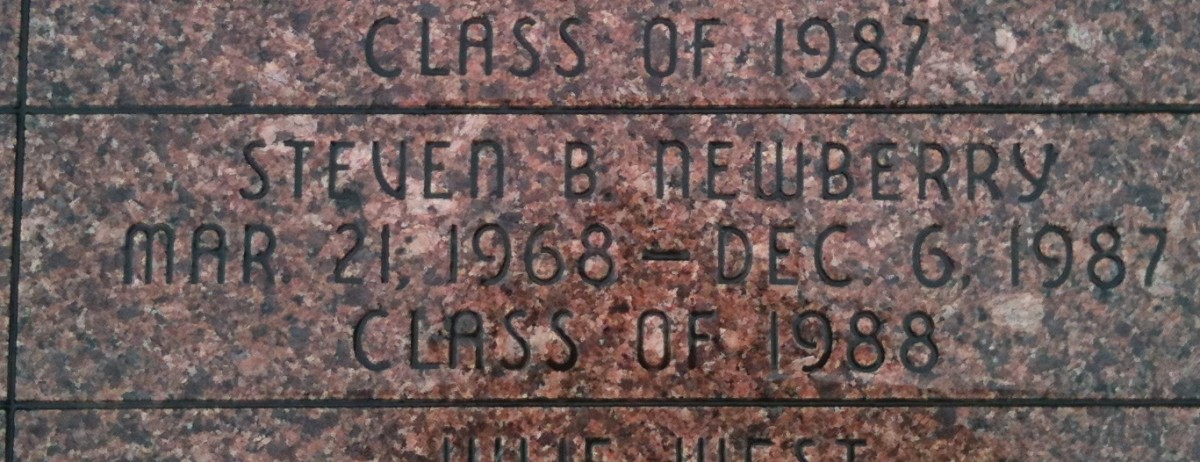Of Pebbles, Politics, Mind, and Matter: Chapter 8

The story so far:
Keeping with the slightly subdued pace of life during middle-age after the frenzied tempo of youth, Charuchandra ambles through a reasonably tranquil period, its beginning marked by an addition to his family. In the sixth year of his tenure as a minister in the government, an official decision casts its dark shadow on his personal life. Read on to know what it is, how Charuchandra engages with it, and the terrible consequence that confronts him.
If you wish to revisit the first chapter at this point, please click on the following link:
If you wish to revisit the second chapter at this point, please click on the following link:
If you wish to revisit the third chapter at this point, please click on the following link:
If you wish to revisit the fourth chapter at this point, please click on the following link:
If you wish to revisit the fifth chapter at this point, please click on the following link:
If you wish to revisit the sixth chapter at this point, please click on the following link:
If you wish to revisit the seventh chapter at this point, please click on the following link:
If not, please scroll down to read the eighth chapter titled "Bonding and the bonded".

Chapter 8: Bonding and the bonded
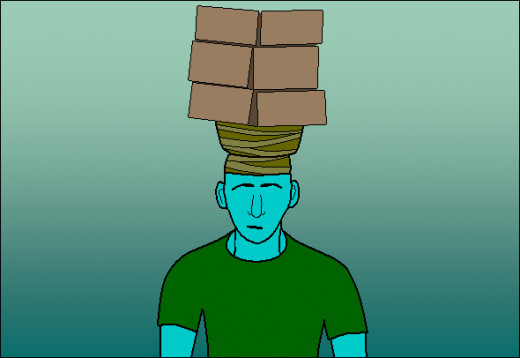
Jado Murmu wiped the streaming beads of sweat off his brow with the sleeve of his tattered shirt. He cast a surreptitious glance in the direction of his supervisor and seeing the man's back turned towards him, hazarded a standing stance for a few seconds to provide respite to his bent waist and knees. Not yet eleven, he was made to work with five other boys about his age in a brick kiln for close to fifteen hours each day and seven days a week with no wages, just sufficient food doled out twice a day and a dingy hut to sleep in, which was shared by all six boys. They were given the option of being paid in cash instead of food, but the amount offered would have hardly sufficed for one meal. The offer was more a ruse to test the level of their acceptance of their conditions. Children, particularly boys, who harbored thoughts of running away from their state of bondage, opted for it and were closely watched by their captors. Hunger usually killed the misplaced enthusiasm within a few days. A few who managed to overcome the pain and torture of hunger, hoodwink their captors, and slip away, didn't get far, their emaciated bodies failing them, even if their minds egged them on. Jado Murmu was among those few and knew what the experience was like and knew even better what followed such a failed attempt. He was beaten so mercilessly that he wished he could die.
That had been almost five months ago. Having grown up surrounded by nature at the edge of the forest, he had this inherent ability of the tribal people, of identifying the time of the yearly cycle almost to a day just by the smell of the air, the state of leaves on trees, the kind of seasonal plants that flourished, the call of the birds, the direction of rise of the sun, and the shadow that it cast at midday. And it was close to six months since he ran away from home following a petty altercation with his younger brother, which was followed by a reprimand from his parents. He realized very soon that it was he who was in the wrong and that they were right in what they said or did, but the realization had come too late. He was already on his way to this prison in the company of two burly men, who had not looked as menacing as they did now, when they had offered him a paid job with perquisites.
Every night, before sleep took control of his exhausted body and provided the only respite that was allowed, he would say a silent prayer to the guardian deity of his people - Maranburu, seeking forgiveness for his wrongdoing and deliverance from his captors. He would even occasionally complain to the deity that his punishment was disproportional to his sin and that the celestial law books would need a look into, to make them more reasonable.
Shared misery bonded the six boys closely and made the ordeal a bit more bearable. Jado felt particularly close to another tribal boy Lalnithanga, who seemed to also have a problem of communicating with his captors, not being conversant with their language. Jado faced this problem with Lalnithanga too, but their bond seemed to find ways and means to understand each other even with this inadequacy, lending credence to the saying that friendship was more a meeting of the minds and a conversation could be had with thoughts alone, if there was to be depth and earnestness in such a relationship.
Lalnithanga's short story had been even more pitiful. He had been taken away from his parents by men in the employ of a moneylender from whom his father had taken a loan and could not repay on time. A year younger to Jado, he had been snatched from his mother's embrace and dragged away wailing, while a few other armed men held their parents. He had been bought and sold twice, each time at a profit, before landing at the brick kiln in this small town. His already meager daily rations too were further curtailed because he had cost his captors comparatively more than the other boys to be brought here. While the expenditure on the others had been restricted to food and transportation for the others, in Lalnithanga's case, they had to pay for his person as well. Jado and Lalnithanga would pool their rations and share it. The joy of camaraderie seemed to partially balance the agony of a half filled stomach. In their state of abject despondency, every shred of joy, however small it may have been, was a welcome comfort.
* * *
During the period of six months that they had been here, Jado and Lalnithanga had seen groups of other older boys who had apparently been at this place much before them and from whom they had learnt the skills necessary for the work they were assigned, being taken away and then never seen again. It was said that they were to be sold individually to owners who made them do a range of jobs - usually of a menial nature. Those who had had the privilege of having primary school education before being abducted, got to be sold into marginally better jobs. Not that it mattered from their point of view, because slavery in any environment was equally depressing and depraving. To the traffickers it made a difference, as those with rudimentary education fetched a higher price.
The brick kiln and a few other enterprises that they had established were transit points for the human commodities, which could be profitably utilized even during this time, while awaiting definite orders at the right price from prospective buyers.
It was to be said to their credit, that the organizers hit upon the brilliant idea of exploiting the government too in the process. With so many children around, they decided to have a nonexistent school on paper and obtain official grants to run it. It would take care of all administrative and infrastructural expenses for the other enterprises that they had, where the school was supposed to be. It would also take care of the inducements to be paid to the right officials to authorize the venture and then keep it working year after year. They had appointed an intelligent and hardworking young man who was not very particular about being always on the right side of the law, to maintain the necessary registers and records for the imaginary school. He would also write the answer sheets for all the hypothetical students of the school appearing for the board examination and hand them over to the man from the education board who would be designated by their pliable conniver at the ministry to go to the school as the invigilator. It was an arrangement that could have worked for a few years before being exposed, but the perpetrators were more interested in immediate returns, which was quite substantial, than on a long term bargain. It was good as long as it worked. If it went bust, there would always be new schemes to think about and implement.
That the law of probability favored longevity of enterprises that confined their activities within the limits set by prevailing laws and went against those that did not, was not unknown to the feloniously inclined. It was a matter of preferences. Some liked the thrill and excitement of indulging in unlawful pursuits though they were less enduring, while others fancied the more sedate but durable meanderings of legitimate quests. Charuchandra's model would have held the seeding of the unconscious self in the period between conception and birth to be the cause of such variances.
When the education minister received Tayyab Hussain's report about the strange happenings at the school in the small town and his brief earlier involvement with it as a field officer, he decided to have a discreet and unofficial probe done, before initiating official action. The man he chose for the job was his trusted lieutenant - Jerry Ranga.
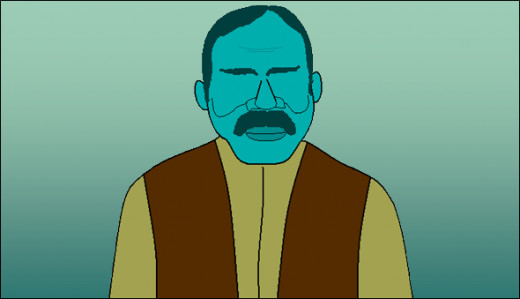
As efficient and quick as he always was, Jerry set off on his assignment and was back in three days to report to the minister. Age and his association with Charu had effected subtle changes in his outlook and approach to life. He was gentler than he was in his youth, more accommodating in his views, and more delicate in his manners. With his formidable exterior, the new combination of characteristics gave a him a captivatingly authoritative personality.
"What news, Ranga?" asked Charu, when Jerry made his appearance in the minister's office, after his return from the reconnaissance mission.
"Plenty, sensational, and heart-rending, Chandra" replied the lieutenant, summarizing his experience.
The two had taken to the practice of addressing each other with appellations that were more appropriate to their elevated status in society and the color of their hair, which was beginning to sport occasional streaks of gray. "Jerry" and "Charu" sounded too youthful.
"Let's hear it," said the minister eagerly.
"It is a nondescript little town, more like an overgrown village - squalid, poor, and pitiable. There is one man, whose writ runs in the whole place and who goes by the name of 'Sirji'. He is a local and the only one who appears to have had formal education. Unbridled power has made a megalomaniac of him. His place stands out like a place of plenty in the midst of the ruins of what once should have been a prosperous village. The land is fertile and the fields are being worked, but the wealth is now concentrated at one point and in one man."
"Could you find any definite link between the strange school and this character? I can proceed officially against him only if such a thing exists and is established with definite proof. I shouldn't be seen to be trespassing on another ministry's jurisdiction," interrupted Charuchandra.
"I am coming to that, Chandra. There certainly appears to be a link, though I am yet to uncover it. It will be done in a few days. But have some patience and listen to the whole story first."
"Sorry, Ranga. Go ahead, I am listening," apologized the minister.
"You remember we had inferred that a place that seemed to have a school as a front, should definitely have something to do with children being used illegally, and I went there masquerading as an underworld don from far north wanting to recruit child labor. To win their trust, I let drop the names of a couple of my chums here in the city, having already told the two in advance of my temporary new identity. The maniac should have checked on it by now. Sirji denied having anything to do with children initially and later relented to say that he knew someone who is into the trade and would inform me shortly. I am sure he was buying time to check on my antecedents."
"Ranga, this is a dangerous game that you are playing. I don't want anything happening to you. Let us tip off the ministry of Internal Security and they will get cracking," said Charuchandra with great concern.
"We need proof before you can tip them off, Chandra. Moreover, if that megalomaniac has accomplices in your ministry, he could have them in the police department as well. In no time, he would have a school like environment organized if a government official were to be sent for an inspection. At least the proof gathering will need to be done by us, meaning someone like me, who is not directly connected with the government and has links with the criminal world," emphasized Jerry Ranga.
"But promise me that you will do nothing that would put your life in jeopardy any more. If at all you have to make another visit there, I insist that you take a few of your men with you."
"I will be careful, Chandra. Don't worry," assured Jerry Ranga.
Almost a decade of close association had spawned a brotherly bond between the two friends. Each respected and appreciated the other's strengths and was at hand and ever willing to cover up for the other's failings.
"Could you figure out what he could be doing with children, if our suspicion that he is involved with human trafficking were to be correct?" asked Charuchandra.
"Yes, I saw a few trucks laden with bricks going out of the town. So, obviously there is a brick-making kiln. I also saw, trucks bringing in Tendu leaves. At one particular place, I could sense the strong smell of tobacco. The two clues put together could only mean that beedi making was another industry that flourished there. Interestingly, both brick and beedi making establishments are notorious for employing children. I am fairly certain that is where they are."
"Perhaps, we should alert the Human Resources ministry as well," wondered the minister for education.
"As I said, Chandra, give me a few days to get proof and then you can go ahead and do what you want."
Charuchandra saw reason in what his friend said and acquiesced.
* * *
That evening, at their customary session by the pond-side punctuated by periodic pebble pelting, Charuchandra made Snigdha aware of the enormity of the menace of human trafficking internationally. He had himself been unaware of them until that morning. Following Jerry Ranga's brief, he had searched the Web for information. Whatever that it had to say, had overwhelmed him.
"Snigdha, did you know that about one and a quarter million children are estimated to be trafficked annually worldwide?"
"That is appalling. Where did you get this figure? It is almost a quarter of the population of our city," exclaimed Snigdha, shock clearly showing on her face.
"It is an estimate made by the International Labour Organization. Surely, they would not inflate figures with an intent to sensationalize it. The numbers that they quote would certainly have a basis. What is worse is that they expect these numbers to rise significantly," said Charuchandra.
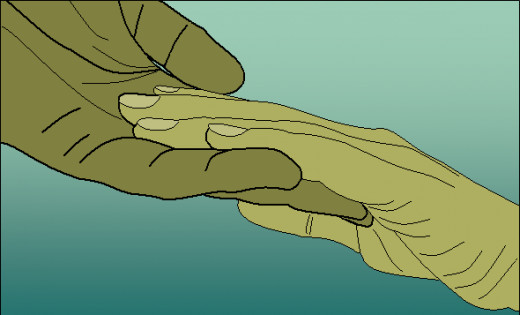
"It can only mean that humans are becoming less compassionate. Isn't it a very sad reflection on them or on us all?"
"Yes, it is indeed. However, if the theory of existence that we occasionally discuss - of it being explainable as a series of place specific happenings strung together in time, in a definite order - were to be true, then you will see that this manifestation of the human psyche will be directed towards an explicit purpose."
"Charu, the pervasive lack of compassion appears to be manifesting in you too! How can you make a dispassionate statement like that when we talk about the ruined lives of innocent children? Will you be analyzing the situation so, if it was to be our child who is caught up in something like this?" chided Snigdha.
"In such a circumstance, I would certainly react with an emotional bias. You needn't be worried about that," answered Charu, dryly. "You also don't need to conclude that I have no concern and sympathy for all those suffering children. We are in the midst of trying to do something about a case possibly involving juveniles being trafficked that has come to light in the course of our school performance appraisal exercise. Tayyab Hussain noticed an anomaly in the records and pointed it out to me. Apparently, he had had a little skirmish with the authorities of this school at an earlier time. It was in this context that I went about gathering information on human trafficking."
"I didn't mean to accuse you," said Snigdha, apologetically.
"The numbers can be very disturbing," said Charu, toning down his own stridency. "But you should realize that as a percentage of the global population, it would vary within very narrow limits, if you were to compare trafficking between now and, say, five hundred years ago."
"Is there anything that we can do on a regular basis to help stop this atrocity?"
"You will again accuse me of being heartless, Snigdha, but these are things that can never be stopped entirely. If we consider the present to be the worst of times for such occurrences, then as a percentage of the global population it is 0.021 percent. At the best of times, it may be a tenth of this percentage figure, which in absolute numbers would 125000 children. It can never be eradicated completely and is very similar to diseases persisting despite the constant advancement of medical science, or the continued prevalence of other forms of felony like robbery despite the long history of policing and regular incarnations of great souls exhorting people to desist from such activities."
"I can't help repeating myself, Charu, but your analysis and explanations are always scary. The future seems to be devoid of hope," observed Snigdha, shuddering.
"Hope and despair always go hand-in-hand, dear, in the manner that we go to bed now," replied Charu, taking her palm into his.
* * *
Depending upon an analyzer's perspective, the two innocuous incidents that set the pace for the tumultuous events that followed could be construed as negligence on the part of the two individuals involved in it, or could be taken to be the unavoidable sparks that set aglow the inevitable blaze that ensued.
The first of these involved Tayyab Hussain. Generally not the one to openly vent his annoyance or make indiscreet remarks, his exuberance at the possibility of finally being able to get the better of his dishonest colleagues and put an end to their deceitful activities that he had been forced to watch in silent frustration, made him mention in the presence of his subordinates that it was time nonexistent schools were closed and that the minister would soon be doing something about it.
One of his subordinates, who also unofficially reported to one of Tayyab's more insincere colleagues and who happened to be the one handling the affairs within the ministry of the fictional school in the small town, promptly reported the remark to his informal superior. The message got rapidly relayed to the small town and its chief - Sirji.
Jerry Ranga, for whom caution and the practice of divulging only as much information as was necessary, were second nature, had been making enquiries within the labyrinthine information circuits of his former occupational domain about buyers and suppliers of child labor, and inadvertently let slip the name of the small town. It was not long before this bit of information too reached Sirji. It did not take much time and effort for the wily man to link the incidents together and conclude that Jerry Ranga was a decoy and decided to take the fight to the camp of the enemy. He believed that a strong statement was necessary to impress upon them that they walked this path at their peril and that Sirji was not a man to be underestimated or trifled with.
* * *
Avyay Chimalgi, was now five and old enough to attend a Nursery School. There were many in the vicinity of the Chimalgi residence that vied to have the son of the education minister on their rolls. The competition among the schools was a boon to all parents whose children went to them as the standards of teaching and facilities provided showed a remarkable improvement at no additional cost to them. The school that was successful in being chosen for the honor advertised their achievement widely. Charuchandra was against such ostentations, but could do very little to stop it as the school accepted no grants from the government. He would have preferred enrolling his son in a government school, but Snigdha had been totally against the idea.
Though the school was at a distance from their residence that could be walked, the boy was dropped and picked up every day in the minister's official car. Charuchandra had been against this as well. The police department, however, had insisted on the current arrangement citing security concerns.
It was a usual week day morning that saw the minister's aide drop Avyay Chimalgi at the school gate in the morning in the official vehicle and then get back to take the minister to his place of work. But the afternoon turned out to be different from the usual. The aide waited for a while at the school gate to pick up the child and when he found that Avyay had not made his appearance even after all the other children had left for the day, he went inside to enquire, only to be told that the child's mother had taken the boy home early.
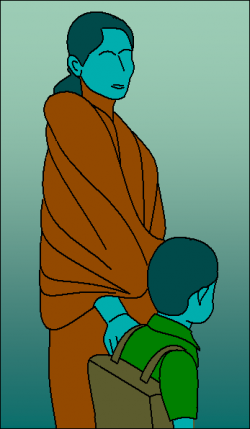
The aide rushed to his superior's home to find out whether it was truly so and realized to his dismay that it was not. The alarm was raised, but no one had a clue about who had taken the child away. The gateman at the school had only this say that a well-dressed woman had come in a car quite similar to that of the minister's and asked for the child. He had conveyed the message to the authorities inside and one of the teachers had brought the child out.
The highly agitated and terrified teacher was incoherent with fright, and nothing could be gleaned from her about the details of the likely abductors. A general alert was announced by the police with road blocks put up at all exit points from the city, to check outgoing vehicles and persons.
Jerry Ranga knew at once whose handiwork this would be. He meticulously sifted through his memory to see whether any of his actions or uttering could have prompted the person he suspected to have made this move, and after a while identified his lapse. He wasn't sure whether this had caused the outcome, but felt miserable all the same. Resolving to make amends, he gave a call to his men to mobilize for action.
* * *
Over the years, Charu had developed a series of decision-mimicking models for a typical representative of every broad class of individuals. As soon as word of the likely abduction of his son reached him, he activated the model for a scenario as it was at the present to anticipate what the abductor's next move might be. He was convinced with the results obtained, which indicated that this was not an abduction for ransom, but one that would seek conciliatory actions from his side of a political or administrative nature. The thought that such might be the likely result, provided him with the assurance that his son would not be harmed, at least immediately, and also allowed him to concentrate on the task of figuring out what manner of concessions he could agree to, without causing a loss of face to the government and hurting his own conscience.
* * *
Tayyab Hussain had a more direct reminder that he had blundered. His unscrupulous colleague walked into the cabin at lunchtime and said gleefully, "It appears that you were contemplating action against erring schools. Look, what you have landed your friend the minister into. His son has been abducted. I am sure it must have been because he tried to cross some powerful man's path. Learn to watch your step, Tayyab, lest something were to happen to you or one of your family members as well."
"You wretch! You should have set this up. I know about all your underhand dealings," exploded Tayyab, midway through his meal.
"Watch your words, Tayyab," remarked his colleague, enjoying the agitated man's unease. "Before you make accusations, make sure that you have proof."
"I will get it, if that was to be the last thing I did," yelled Tayyab.
"Careful, man. It might just happen that it might truly be the last thing you do," said his colleague menacingly and walked away with a smug smile on his face.
The distraught under-secretary rushed to the minister's chamber. He could see that there was already another visitor at the time, conversing with the minister. Normally, he would have waited until the visitor departed before entering. But today, he was not himself and rushed in.
"I am sorry, sir, to have barged in so. But I have to confess that it was my mistake that has brought this calamity upon you. I am ready to do whatever that you ask me to, on this matter."
"What is it, Tayyab Hussain? Sit down and tell us all in detail."
Tayyab looked at the visitor to indicate that he would rather have a private chat with the minister.
"It is all right. This is Janardhan Ranga, a very close friend. He too is here to discuss the same problem. You can say whatever that you need to in his presence," assured Charuchandra.
"Sir, it was my imprudence that created this mess," whined Tayyab Hussain.
"Ranga seems to feel the same way about himself, while I believe that it was I who started this by asking both of you to pursue the matter about the school. Let us not blame ourselves or anyone else. We will think ahead, decide what needs to be done to have my son released without any embarrassment to the government," said Charuchandra.
"We are sure to hear from the abductors very soon. They have waited this long only to loosen us up a bit, so that our increasing anxiety will make us agree to their terms easily," opined Ranga.
Charuchandra's mobile hummed, as if to confirm Ranga's surmise. The minister let it chime for a few seconds before answering. His colleagues watched expectantly. But it was Snigdha, almost hysterical at the other end, her shrill voice clearly carrying to Ranga and Tayyab Hussain seated a couple of meters away, through the minister's mobile.
"Where is my son? Have you located him?" the distressed mother shrieked.
"He will be fine. We are in the process of having him released," answered Charuchandra, evenly.
"Empty assurances! I know that you and your friend Ranga are sitting at your office, waiting for things to happen, rather than going after the abductors," screamed Snigdha.
Charu disconnected the line. Snigdha tried calling a few more times, but her husband refused to answer. It made Ranga and Tayyab Hussain feel guiltier.
A short while later the minister's mobile chimed again. Without bothering to look who it was that called, Charuchandra yelled into the instrument, "Will you please stop bothering and let me do my work?"
A calm voice on the other side replied, "If getting your son released is a bother, then I will not disturb you, Minister."

"Who is that?" asked the minister sitting erect. His colleagues too stiffened.
"You know who I am or would have at least guessed who I could be. I have no intention of keeping your son for long. If you dismiss Tayyab Hussain at once for dereliction of duty, elevate his deputy in his stead, and also ask your friend Ranga to refrain from going on long sojourns and from enquiring about matters that don't concern him, your son should be with you tonight. If Tayyab Hussain attends office tomorrow, then too I will not hold your son as promised. He would have been sold to the highest bidder in the slave market. There will be a lot of willing takers for pedigreed offspring. You will hear from me again tomorrow," concluded the voice and the call was terminated.
The minister told his colleagues about the conversation.
"Sir, I am willing to be dismissed immediately. Just frame the charges against me and I will confess to all of them without any reservations. If doing that is going to secure the release of your son, I will only be too happy to do so," offered Tayyab Hussain.
"I don't intend giving into any of their demands, Tayyab. We will find another way to solve this matter," said the minister in a determined voice.
"Do you wish to inform the police and tell them about Sirji? I am sure he will have his informers there as well. We will need to surprise him," observed Ranga.
"Do you think you can organize a raid on the small town with your men, Ranga?" asked the minister.
"Yes, I have already ordered my men to be in combat mode."
"How long does it take to reach this small town, which is the fiefdom of Sirji?"
"A five-hour drive."
"If we start now, we should be there by about eight or nine in the evening."
"Yes."
"Do you have the necessary transport?"
"Taking our own transport will alert them. We will use public transport and once we are close to the place, seize one of the lorries that transport, bricks, Tendu leaves, or other merchandize to the town.
"Then let us start right away."
"I suppose you are including yourself just as a manner of speech and don't intend it, or do you?" asked Ranga.
"Of course, I am coming. It is my son who is being held hostage."
"But you are a minister, Chandra. You also have a constitutional duty to perform," protested Ranga.
"Look, if I am with you, I can call the minister for Internal Security, tell him that it is an emergency and that I am stuck, and ask him to send in the elite commandos on a rescue mission. That will make them act with alacrity."
"Yes, you have a point. We will start immediately. Tayyab, you go home and relax. There is nothing to worry," said Ranga turning to the oldest of the three men gathered there.
"I am coming too," declared Tayyab Hussain. His voice was unwavering and there was a finality in it.
"But what would you do, Tayyab?" asked Ranga.
"I have been in that town for a longer time and have seen more of the place than you have, Ranga, including the location where they have the brick kiln and the beedi manufacturing unit, which they tried to convince me to accept as a school premises. I will be able to find my way about the place better than any of you."
With all three equally adamant on going, they set out, along with Ranga's armed combatants, and separately boarded public transport buses in various guises.
Tayyab made for a milkman and carried an empty can. Charuchandra was attired as a farm worker and carried a sack on his back filled with dung cakes. This item was specifically chosen, as it was lightweight and easy to carry. Ranga with his bulk couldn't be anyone but a muscleman. He sported a false beard and the casual attire of a toughie with a red scarf around his neck, which had been his regular dress-code until a few year ago, but was later abandoned for decent and formal wear. Ranga's men sported an assortment of other masquerades. They had dinner at a roadside eatery and having reached the junction, where one road branched off towards the small town, they alighted to wait for an alternative transport to ferry them into the town. While Ranga's men waited in the shadows, the odd trio of a milkman, a farm worker, and a small-time gangster, stood by the dusty roadside, ready to wave down a passing truck to stop.
Charuchandra made a quick-call to the minister for Internal Security to keep him apprised. He emphasized on the need for secrecy and requested him to keep a unit of elite commandos ready for action at short notice, without telling anyone else about the likely place of deployment. His ministerial colleague assured him that two helicopter-borne units of twenty men each would be stationed at a base within fifteen minutes flying distance of the target.
About three hours later, a truck laden with Tendu leaves slowed down at the junction to take the turn into the road leading to the town. The trio was in position to stop it. The driver was in no mood to take on passengers at this time of the night, but he couldn't help stopping, for otherwise he would have run over the old milkman hobbling across the road.
"I am not interested in taking you guys on board. Look for another truck," he yelled sticking his head out of the window of the driver's cabin.
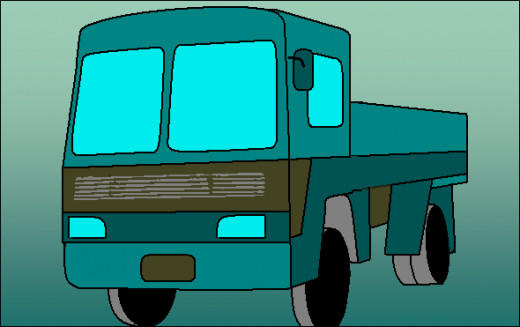
His assistant did the same from the other side. But before they could figure out what was happening, a horde of armed men issued forth from the darkness, pulled them out, and bound them. There was one more young man who had been seated in the truck's cabin, sandwiched between the two bound men. He too was bound and was ordered back into the truck. Ranga detailed two of his men to take up position at the junction to guard the prisoners until morning, before setting them free, and direct any police vehicle that may come later, towards the town. The rest of the armed horde concealed themselves among the sheaves of dry leaves in the truck's cargo bay. Jerry Ranga took the wheel, with Charuchandra, Tayyab Hussain, and their bound prisoner inside the cabin, and the truck started to lumber along the road towards its destination.
* * *
"Where do you have to deliver and download the leaves?" Ranga asked their prisoner, as the truck went past the first dwellings of the town. It was almost three hours past midnight.
"By the side of the shed where beedis are made."
"Who downloads it?"
"There are men employed to do that. We just park the vehicle, hang around until the cargo is downloaded and drive away."
"Where do you collect payment?"
"We are paid by our contractor in the neighboring town and don't collect anything here."
"How long does it normally take before the cargo bay is emptied?"
"About three-quarters of an hour."
"Look, kid. We mean you no harm. We are here to rescue children half your age, who have been abducted and forcibly made to work here. Among them is this man's son," said Ranga to the young man, pointing to Charuchandra. "When we are finished with our mission, we will take you back with us and leave you and the truck with the two other men that we left behind. If we remove your bindings, will you cooperate and help us?"
"Are you the police? Are you government officials?" asked the young lad.
"He is a minister," said Ranga, pointing to Charuchandra again. "The police will be here early in the morning to arrest the people who run this racket after we have rescued the imprisoned children."
"They too have a number of armed men. I have seen many, every time we come to make a delivery."
"We will have to take them by surprise. That is the reason, why we need your help."
"I will certainly help you, sir," said the boy, deferentially. "My father will be proud, if I did so. He too would have helped, if only you would have told him all this."
"Was the driver of the truck, your father?" asked Charuchandra.
"Yes, sir."
The minister felt a pang of guilt assail him. To get his abducted son released, he had abducted another's son. He resolved to make sure that he reunited the boy with his father by the morning.
Ranga, guided by the boy, drove the truck without incident to the place where it would be usually parked every time it had a consignment to deliver here. Luckily for them, there was no other vehicle in sight. A man holding a torch in one hand and a rifle in the other, emerged out of the shed and directed the light at the cabin. The boy quickly wriggled out and spoke to the man.
"I haven't seen the one driving the truck before, Who is he?" asked the man with the rifle, suspiciously eyeing Ranga.
"He is my uncle. My father isn't well. He fell down and sprained his leg. My uncle came to look him up and also offered to deliver the consignment in his stead."
"Who are the other two in the cabin," asked the man, focusing the beam of light once again at the seated men.
"My uncle's friends. They all came visiting and will be going back in the truck. My father wouldn't need the vehicle for a few days as he can't use it."
By this time, Ranga had got down from the driver's seat and approached the man with the rifle. He saluted him and said, "Get the load off the vehicle fast, mate. We have to get back quick and I have to attend to my work too in the morning."
"Hey there! You seem to be new to this place. Outsiders keep their traps shut hereabouts, if they wish to stay in one piece. The next time you open it, it will be filled bullets, get it? We do things at our pace and you just stand to one corner and watch, all right?" said the man with the rifle, threateningly.
"I will explain everything to my uncle. We don't mean any trouble," intervened the boy, trying to diffuse the situation.
"You better," said the man, casting another withering glance in the direction of Ranga, before moving away to call his men to remove the leaf-bundles from the truck.
Ranga slowly walked over to the back of the truck and loosened the grips that held the hinged back-restraint, which made it to open, turn on its hinges, and hang down. A few Tendu leaf-bundles that were stacked against the back-restraint rolled out and fell to the earthen floor.
"As soon as the men get busy, show yourselves with your weapons at the ready. There is only one armed man here at the moment. I will position myself behind the guy and disable him as soon as his attention is diverted by you. Jump down from the truck immediately afterwards and secure the place before anyone raises an alarm," he whispered into the mass of leaves.
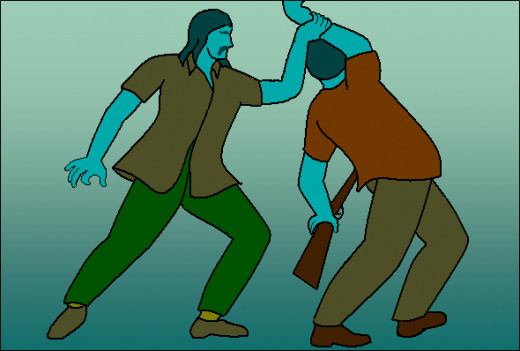
The leaves seemed to speak soft words of assent.
Things moved as planned. After the first few bundles had been carried away, the concealed men showed up and ordered everyone to freeze, hissing out their commands so that their voices did not carry too far. The instantaneous reaction of the man with the rifle, who was not in the firing line of Ranga's men, was to raise his weapon to retaliate. He felt that the report of the rifle fire would be a much more effective alarm than his voice, which could be construed to be just a shout at his men to hasten work. If his aim were accurate, it would also mean one adversary less. Moreover, a shout from him would attract attention to himself followed by a hail of bullets. His tactic was appropriate except that he hadn't accounted for one detail. The burly deputy of the education minister had already moved behind the man and with a forceful blow to the side of his neck, sent him crumpling down silently.
Ranga's men herded the rest of the workers into the shed, bound, and gagged them. Charuchandra and Tayyab Hussain got off the truck. Ranga had given them strict instructions not to get down, until he had disabled the rifle-wielding man. The minister looked at his wristwatch. It was three hours past midnight. They had just about three hours more to search for the imprisoned children and escape from there. The first light of morning was sure to alert people of unusual happenings. Once an alarm was raised, it would be a terrible gun-battle that was likely to ensue, the result of which none could predict.
Ranga questioned some of the workers and got to know the exact locations where the children were housed. They were also told that each of these locations usually had two or more armed guards around. Ranga led the way towards the first of the huts that might house the abducted children, followed by Tayyab and Charuchandra. Two guards lounged and dozed by the door, rifles across their laps. Ranga stole past them into the hut while the other two investigators waited in the shadows. A minute later, the burly man's bulk was framed on the hut's door, gesturing towards his accomplices to come in.
As the two tiptoed their way in the direction of the hut's door, the face of one of the guards twitched and his hands unconsciously gripped the weapon lying across his lap, the movement possibly triggered by a dream. Charu and Tayyab froze. Ranga removed his weapon from the shoulder holster. But the guard settled back, the disturbing sequence in his dream having passed.
The two fright-frozen men thawed and went in. Lying on the floor were seven children, wrapped in blankets from head to toes to keep out the cold that pervaded the damp and unkempt interior of the hut, the light from a very low-wattage bulb that hung from the ceiling giving the place a strange and ghostly ambience. Only a part of their faces were visible. But it didn't take more than a glance for a desperate father to spot his missing son. Ranga had already checked to ascertain whether the smallest of those sleeping children was Charu's son Avyay and having confirmed that it was so indeed, had called his two friends over.
As Charu made to pick up his son, Ranga stopped him with a gesture. "If the child wakes up and speaks, as he is bound to in his excitement, it will alert the guards outside," whispered he.
"What are we to do now?" whispered back Charu.
"You two stay here, while I bring my men and the truck. We will take the children out of harm's way before calling in the commandos. Do you agree?" asked Ranga.
"There may be more children at other locations. Would it be right to rescue only these when the possibility exists of the others being caught in the cross fire?" asked Charu.
"Then what is it that you suggest?" said Ranga.
"Let Charuchandra call his colleague and ask the police commandos to begin their operation. It is quite possible that when the people here see the police, they may desist from retaliating, as they certainly would if they see Ranga's men," suggested Tayyab Hussain.
"Shall I then go out and make the call?" enquired Charuchandra.
"If you are apprehended or shot on your way out or while you are making the call, it will greatly complicate matters. Why don't you call from here?"
"I will have to speak much louder over the mobile than the kind of whispering that we have been indulging in. That will awaken the children as well as the guards."
Ranga looked around the hut and found a few extra blankets stacked in a corner. He unfolded all, asked Charu to squat on the floor and draped them over him.
"Now speak a little loudly when I tap you on the head. I will tap again if it sounds too loud," whispered Ranga, lifting up one end of the blanket and speaking under it.
At the signal, Charu spoke from under the blankets relatively aloud. Nothing could be heard. He spoke a bit louder. Only a faint voice reached the ears of the listeners.
"It is perfect. Put the call through to the minister and call the commandos in," said Ranga, sticking his head under the blankets to reach Charu.
The call was made, Charu emerged from under the blanket-cocoon, and they began their quarter hour wait to hear the drone of low flying choppers.
It was then that Avyay stirred. None could say what made him do so. Perhaps, it was the hand of destiny or the inscrutable work of the number six and its close relationship with the life of Charuchandra. The little boy rubbed his eyes and looked at the three men standing to one corner. He couldn't immediately place the farm worker and the false-bearded toughie. But there was no mistaking the milkman. Having left his milk can behind in the cabin of the truck and removed the loose turban on his head, he looked more Tayyab Hussain than a village milkman. The final mark of confirmation was his red tongue and lips, colored so because of the constant chewing of betel leaves lined with lime.
"Uncle Tayyab!" shouted the boy and sprang towards the graying man.
Tayyab Hussain took the boy into his arms, as he came scampering towards him.
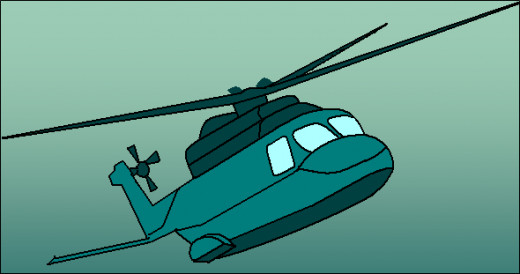
"They beat me, Uncle Tayyab, and gave very little to eat. I am hungry and want to go home to mamma and papa. So do all the other boys here," said the boy and started to sob.
Tears welled up in Charuchandra's eyes seeing the plight of his son. Before he could reveal his presence too to the boy, a sharp voice from outside the hut rent the air.
"What is it that you rats are upto? Shut up and sleep!"
Ranga knew that the voice will soon be followed into the hut by its owner and prepared himself for action. His weapon that had returned to the shoulder holster was back in his huge palm.
One of the guards came in and looked around, unprepared for a violent reception. Ranga - who had flattened himself against the wall near the door - brought the butt of his weapon upon the head of the guard. The man fell to the floor unconscious, but not before having shouted for help during the split second between his spying Ranga about to attack him and being actually hit.
The second guard was prepared for action as he came in. It was the barrel of his rifle that preceded him into the hut. The faint drone of the choppers could now be heard at a distance. Ranga decided to chance a skirmish with an armed man and alert the adversary, and at the risk of the report of his gun drawing more guards to the hut, shot the man as his face peered in.
"Quick, now! Rush towards the truck and get in," he yelled.
Tayyab, still clasping Avyay to his bosom went first. Charuchandra glanced at the other boys. He grabbed the two closest to him and who also seemed the youngest of those who remained and rushed out. Ranga herded the remaining four ahead of him. They could hear shouts of surprise and confusion from every direction. The drone of the choppers had become louder and they could now be seen as beacons of light zeroing in towards them. The fast approaching aircraft provided an ideal diversion for the fugitives to find their way to the truck without being challenged. The three men and the seven children boarded it. Ranga shouted to his men standing there to await his return, snatched a field torch from the hand of one of them, and drove away.
"Call the minister for Internal Security and tell him to convey to the leader of the commandos to pick you up on the outskirts of the town. I will drop you on the road leading towards the junction. Signal to the chopper using the torch."
"Where are you going?" asked Charuchandra.
"Back to my men. I belong with them. Can't leave them while they face the enemy's bullets."
"But the police commandos are here. They will mop up the resistance. Anyway, I understand your decision. Go ahead."
It was then that Charu remembered the young lad they had abducted with the truck. "Ranga!" he called, as the big man was about to drive away.
"Yes, what is it?"
"Don't let any harm come to the boy we brought along. He has to be restored to his father alive and in one piece."
"Will do," yelled back Ranga, and he was gone.
The skirmish lasted for about an hour and ended as the first light of dawn graced the horizon.
Minister Charuchandra who had been picked up and transported by helicopter to the police base close by, was informed soon after by the leader of the commandos that the mission had been successful. Fifty-five children had been rescued - thirty-four boys and twenty-one girls, all in the age group of seven to twelve. Sixteen of the traffickers had been killed. Their leader Sirji had escaped in the cover of darkness with many bullet injuries. They did not expect him to survive. One police commando was wounded and one of the minister's men too had been killed.
When Charuchandra asked who the slain man was, he was told that it was the leader of his militia - Janardhan "Jerry" Ranga. His body was found riddled with bullets sprawled over that of a boy, who was alive. It was reported by eyewitnesses that the two had been cornered by the enemy and Ranga died protecting the boy from being harmed.
* * *

Chapter 9: Made-to-order Conscience

Chapter 10: To the Brink and Beyond




